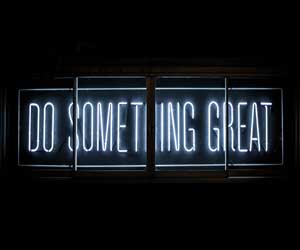



In the realm of psychology and personal development, the concept of mindset is a powerful force that significantly influences problem-solving and creativity. A person's mindset, whether fixed or growth-oriented, can shape their ability to navigate challenges and harness their creative potential. Understanding how mindset impacts problem-solving and creativity can lead to more effective approaches in both personal and professional endeavors.
The Power Of Mindset
A mindset can be broadly categorized into two types: a fixed mindset and a growth mindset. Those with a fixed mindset tend to believe that their abilities and intelligence are static traits, while those with a growth mindset believe in the capacity for improvement through effort and learning. This fundamental distinction has a profound impact on problem-solving and creativity.
Influence On Problem-Solving
Fixed Mindset: Individuals with a fixed mindset often approach problems with a fear of failure and a desire to prove their abilities. They may avoid challenges or give up easily when faced with difficulties. Their focus tends to be on proving themselves rather than on effective problem-solving.
Growth Mindset: Those with a growth mindset see problems as opportunities for learning and growth. They embrace challenges, persevere through setbacks, and view failures as stepping stones toward improvement. Their focus is on developing skills and finding innovative solutions.
Influence On Creativity
Fixed Mindset: A fixed mindset can hinder creativity by limiting one's willingness to take risks. Fear of failure or criticism can stifle creative ideas and the exploration of unconventional solutions. People with a fixed mindset may stick to what they know, avoiding creative endeavors that might challenge their self-image.
Growth Mindset: A growth mindset encourages creative thinking. Individuals with this mindset are more likely to explore new ideas, take creative risks, and welcome feedback. They view challenges as opportunities to expand their creative abilities, leading to more innovative solutions.
Developing A Growth Mindset For Problem-Solving And Creativity
Recognize Fixed Mindset Patterns: The first step in developing a growth mindset is to become aware of fixed mindset patterns in your thinking. Identify when you're avoiding challenges, giving in to self-doubt, or feeling threatened by failure.
Embrace Challenges: Instead of shying away from difficulties, actively seek out challenges. Understand that confronting problems head-on is an opportunity to develop problem-solving skills and creativity.
View Failure As A Learning Experience: Shift your perspective on failure. Instead of seeing it as a reflection of your abilities, view it as a valuable learning experience that contributes to your personal and professional growth.
Cultivate A Love For Learning: A growth mindset is rooted in a love for learning. Continuously seek knowledge and skills that can enhance your problem-solving abilities and creativity.
Encourage Risk-Taking: Take creative risks and step outside your comfort zone. Experiment with new ideas, even if they seem unconventional or uncertain. Embrace the potential for creative growth.
Mindset plays a pivotal role in problem-solving and creativity. While a fixed mindset can limit one's potential and hinder the ability to tackle challenges and generate creative solutions, a growth mindset fosters resilience, innovation, and a willingness to learn. By recognizing and cultivating a growth mindset, individuals can unlock their problem-solving and creative potential, leading to more effective and innovative outcomes in various aspects of life.


Embracing Transformation For Personal Development
 When we navigate through unfamiliar territory, we uncover hidden capabilities within ourselves. These challenges bring out our inner strength, perseverance, and the ability to overcome adversity. Through these experiences, we learn that we are more capable and resilient than we often realize.
When we navigate through unfamiliar territory, we uncover hidden capabilities within ourselves. These challenges bring out our inner strength, perseverance, and the ability to overcome adversity. Through these experiences, we learn that we are more capable and resilient than we often realize.
Moreover, change provides an opportunity for self-reflection and self-discovery. In times of transition, we are prompted to reevaluate our goals, values, and priorities. It's an opportunity to clarify our desires, eliminate what no longer serves us, and set new, more meaningful objectives for ourselves. In this way, change can lead to greater self-awareness and personal growth.
Change fosters innovation and creativity. The need to adapt to new circumstances encourages us to think outside the box, find creative solutions, and explore new possibilities. This process of innovation can spark personal growth by expanding our horizons and pushing the boundaries of our comfort zones.
Developing a growth mindset is crucial when it comes to embracing change as an opportunity for personal development. A growth mindset is the belief that abilities and intelligence can be developed through dedication and hard work. When we view change as a chance to learn and grow, we naturally adopt a growth mindset, which, in turn, propels our personal development.
 Embracing Positivity: Cultivating a positive mindset starts with the embrace of positivity. Instead of dwelling on problems and obstacles, focus on solutions and opportunities. This shift in perspective leads to a more optimistic outlook on life.
Embracing Positivity: Cultivating a positive mindset starts with the embrace of positivity. Instead of dwelling on problems and obstacles, focus on solutions and opportunities. This shift in perspective leads to a more optimistic outlook on life.
Reducing Stress: A positive mindset is closely related to stress reduction. It helps you manage and cope with stress more effectively, preventing it from negatively impacting your well-being. A positive outlook encourages relaxation and fosters resilience.
Enhancing Resilience: Resilience is a vital component of well-being. It's the ability to bounce back from setbacks and adapt to change. A positive mindset equips you with the mental fortitude to navigate adversity with grace.
Fostering Healthy Relationships: Positivity often leads to more harmonious and supportive relationships. When you adopt a positive mindset, you are more likely to attract positive individuals into your life, leading to improved social and emotional well-being.
Improving Mental Health: A positive mindset can significantly improve mental health. It reduces the risk of conditions like anxiety and depression, enhances emotional stability, and increases overall mental well-being.
A Double-Edged Sword
 The Power Of Ambition
The Power Of Ambition
Ambition is the driving force behind the relentless pursuit of success. It propels individuals to dream big, set ambitious goals, and relentlessly work towards them. Ambition can lead to remarkable achievements and innovations, pushing the boundaries of what's possible in various fields.
The Dark Side Of Relentlessness
While ambition is a powerful motivator, the relentless pursuit of success can have a dark side. It can lead to workaholism, burnout, strained relationships, and a narrow focus that neglects other essential aspects of life, such as physical and mental well-being. In the pursuit of success, some individuals may sacrifice their health, work-life balance, and even their values.
Finding Balance
Finding balance in the relentless pursuit of success is essential. It's crucial to set realistic goals, maintain a healthy work-life balance, and regularly reassess one's values and priorities. Striking a balance allows individuals to achieve success without compromising their well-being and the well-being of those around them.






Strategies For Success
 1. Technological Overload
1. Technological Overload
One of the most prominent challenges of modern life is the constant influx of technology. While technological advancements have brought remarkable convenience, they have also introduced the struggle to maintain a healthy balance. The pervasive presence of smartphones, social media, and digital devices can lead to information overload, screen addiction, and reduced face-to-face interaction.
Strategy: To tackle this challenge, individuals can set boundaries for screen time, practice digital detox, and engage in regular offline activities to reconnect with the real world.
2. Work-Life Imbalance
Modern life often blurs the line between work and personal life. With the advent of remote work and the gig economy, individuals find it challenging to switch off from work responsibilities, leading to increased stress and burnout.
Strategy: Establishing clear boundaries between work and personal life, creating designated workspaces, and adhering to a structured schedule can help mitigate the effects of work-life imbalance.
Understanding Introvert Weaknesses
 Social Anxiety: Introverts are more likely to experience social anxiety and discomfort in large social gatherings. They may struggle with initiating conversations and networking, which can hinder their personal and professional growth. To address this, introverts can practice and prepare for social interactions, focusing on small talk and networking skills.
Social Anxiety: Introverts are more likely to experience social anxiety and discomfort in large social gatherings. They may struggle with initiating conversations and networking, which can hinder their personal and professional growth. To address this, introverts can practice and prepare for social interactions, focusing on small talk and networking skills.
Isolation Tendency: Introverts often need time alone to recharge, but this can lead to isolation if taken to an extreme. Spending too much time in solitude can affect relationships and hinder social opportunities. It's important for introverts to strike a balance between alone time and social engagement.
Difficulty In Speaking Up: In group settings, introverts may find it challenging to voice their opinions and ideas. They might fear judgment or simply prefer to listen rather than speak. To overcome this weakness, introverts can practice speaking up in small, safe environments and gradually work their way up to larger groups.
Overthinking And Perfectionism: Introverts often have a tendency to overthink situations and strive for perfection. While attention to detail is a strength, it can also lead to analysis paralysis and procrastination.
 One of the most significant advantages of solitude is its capacity to provide the mind with a much-needed break from the continuous bombardment of external stimuli. In a world where we are constantly juggling work, family, social commitments, and the omnipresent digital devices, the mind rarely finds a moment of respite. Solitude allows us to escape this chaos and provides an opportunity to rest, reset, and recharge.
One of the most significant advantages of solitude is its capacity to provide the mind with a much-needed break from the continuous bombardment of external stimuli. In a world where we are constantly juggling work, family, social commitments, and the omnipresent digital devices, the mind rarely finds a moment of respite. Solitude allows us to escape this chaos and provides an opportunity to rest, reset, and recharge.
When we spend time alone, free from the distractions of the outside world, our mind can wander freely. This mental wandering often leads to profound self-discovery. In solitude, we can connect with our innermost thoughts, emotions, and desires. It's an opportunity to listen to our own inner voice without the influence of external opinions or societal expectations. This self-awareness is the foundation of personal growth.
Solitude nurtures self-reflection, which is essential for understanding our past experiences, learning from our mistakes, and setting intentions for the future. Through introspection, we gain insight into our strengths and weaknesses, our values and goals, and our dreams and fears. This knowledge empowers us to make more informed decisions and take intentional steps toward a more fulfilling life.